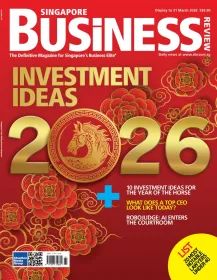Join the community
Thought Leadership Centre
Most Read
1. Singapore to slash CDC vouchers as Budget 2026 pivots to defence 2. Budget 2026 to surge tech funding as ageing workforce squeezes growth: analysts 3. OCBC and UOB to reverse year-long NIM slide in Q4 4. E-ang bao use jumps nearly 50% in 2025 as seniors ditch red packets: OCBC 5. UOB set for growth as DBS, OCBC earnings hold steady: reportResource Center
Awards
Apr
14
Event News
Singapore Business Review Management Excellence Awards 2025 Winner: Moninder Jain of Logitech Singapore Pte Ltd
Moninder Jain of Logitech Singapore highlights how human and AI collaboration strengthened the company’s market position.


 Advertise
Advertise
















Commentary
The omni-channel customer
The omni-channel customer
Is America still open to do business with Singapore SMEs?
Saving PMET jobs from machines
Singapore doubles-down on data literacy in Smart Nation drive
Changes must be made if Singapore is to stay ahead of the curve in cryptocurrencies
A new digital model for the rising millennial business traveller
Why it's vital to regularly spring clean your customer relationships
The future of healthcare for Singapore's ageing population
Overcoming Singapore's expansion challenges
Why change-hungry young generations are the key to unlocking growth
Embracing the opportunity and grasping the risk of new tech and Fintech: A Singapore case study
Sidestepping the perils of data breaches in Singapore
Critical Infrastructure: Downtime is simply not an option
The consumer case for brand freedom in Singapore
Singapore Budget 2018 puts Singapore further ahead in asset management and Reit listing
The implications of big data in manufacturing: How to super charge real-time connected supply chains
5 reasons Singaporeans lose out in the Grab takeover of Uber